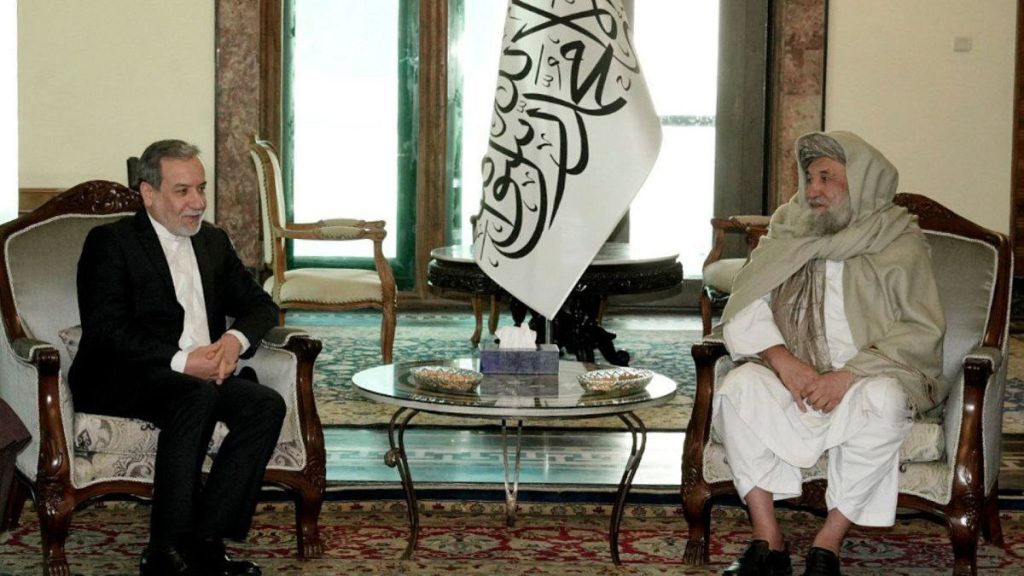Abbas Aragchi’s visit to Kabul, the first by an Iranian foreign minister in eight years, marked a significant step in the complex and often fraught relationship between Iran and Afghanistan. The visit, occurring under the shadow of the Taliban’s return to power in 2021, underscored the evolving geopolitical landscape and the pragmatic necessity for both nations to address shared challenges and explore potential avenues of cooperation. Aragchi’s discussions with senior Taliban officials, including the acting Prime Minister Hassan Akhund, Foreign Minister Amir Khan Muttaqi, and Defence Minister Mohammad Yaqoob, revolved around key issues impacting bilateral relations: border tensions, the treatment of Afghan refugees in Iran, and the contentious Helmand River water treaty.
Border security has long been a point of contention between the two countries. The porous 900-kilometer border has facilitated the movement of refugees, illicit goods, and armed groups, leading to periodic clashes and heightened security concerns. Aragchi’s visit aimed to address these security challenges and explore mechanisms for enhanced border management. This includes collaborative efforts to combat drug trafficking, human smuggling, and the cross-border movement of militants, all of which pose threats to both nations’ stability. The discussions likely focused on practical measures such as increased border patrols, intelligence sharing, and joint operations targeting criminal networks.
The plight of Afghan refugees in Iran, estimated at around 3.5 million, formed another critical component of the discussions. Iran has hosted a large Afghan refugee population for decades, straining its resources and creating social and economic pressures. While Aragchi reiterated Iran’s commitment to the eventual return of these refugees, he acknowledged the complexity of the situation and the need for a phased and manageable repatriation process. The Afghan prime minister, while appreciating Iran’s long-standing hospitality, urged Tehran to ensure the humane treatment of Afghan refugees and address concerns regarding alleged abuses and discrimination. Reports of executions of Afghan refugees in Iran have inflamed public sentiment in Afghanistan, further complicating the issue.
The long-standing dispute over water rights, particularly concerning the Helmand River, added another layer of complexity to the talks. The 1973 Helmand River Treaty, governing the allocation of water resources between the two countries, has been a source of ongoing disagreement, particularly during periods of drought. Afghanistan, facing its own water scarcity challenges, argues for a revised agreement that reflects current realities and its own developmental needs. Iran, heavily reliant on the Helmand River for agriculture and domestic consumption in its arid eastern provinces, insists on upholding the existing treaty. The discussions likely explored potential avenues for resolving this sensitive issue, including technical cooperation, joint water management projects, and the establishment of a neutral mechanism for monitoring water flows and ensuring equitable distribution.
Iran, despite not formally recognizing the Taliban government, has adopted a pragmatic approach, maintaining diplomatic channels and continuing economic engagement with Afghanistan. This pragmatic stance is driven by several factors, including the need to secure its eastern border, address the refugee crisis, and maintain regional influence. Iran’s permission for the Taliban to manage Afghanistan’s embassy in Tehran further demonstrates its willingness to engage with the de facto authorities in Kabul. This approach also reflects a broader regional trend, with several neighboring countries cautiously exploring ways to interact with the Taliban government, even without formal recognition.
Aragchi’s emphasis on enhancing economic ties further underscores the importance of pragmatic cooperation. Iran sees Afghanistan as a potential market for its goods and services, and a transit route for trade with Central Asia. The two countries share cultural and historical ties, and their economies are intertwined. Increased economic cooperation, including cross-border trade, infrastructure projects, and investment in Afghanistan’s mining sector, could benefit both nations. However, significant obstacles remain, including international sanctions on the Taliban regime, security concerns, and the lack of a stable and predictable investment environment. Overcoming these challenges requires concerted efforts from both sides, as well as engagement with the international community to facilitate economic development and stability in Afghanistan. The visit by the Iranian foreign minister, while focused on immediate concerns, also symbolizes a cautious step towards a more stable and cooperative future relationship, built on shared interests and pragmatic engagement.














